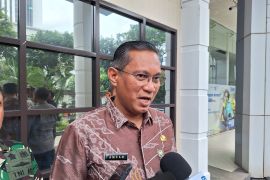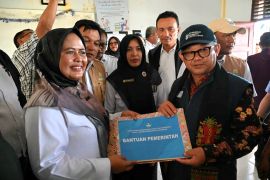In a statement issued on Monday, he underlined that the waste crisis —exacerbated by weather anomalies linked to climate change — has made floods increasingly inevitable, including the recent inundation in Bali.
"These factors caused the Bali floods to have severe impacts on communities and even casualties. This must not happen again, and anticipatory measures must be taken immediately," Soeparno said.
He emphasized that the waste crisis in major cities must be handled through crisis management and swift preventive action to avert ecological disasters.
"People's safety must be a top priority. Tackling this waste crisis requires intervention from the central government, together with provincial, district, and city administrations," he stressed.
Soeparno noted that, as part of efforts to assist local governments in managing waste, he had met with several regional leaders, including the mayors of Bandung, South Tangerang, and Palembang, to hear their concerns and input.
"There was a proposal to revise the presidential regulation on waste-to-energy technology. This is crucial to stop the waste crisis and prevent it from escalating into ecological disasters and health emergencies," he said.
He added that those mayors have expressed commitment to addressing waste management challenges and are expecting stronger collaboration with the central government.
According to the National Waste Management Information System (SIPSN), Indonesia generated 35.19 million tons of waste in 2024, based on reports from 322 districts and cities. Of that total, 21.6 million tons remained unmanaged.
Related news: Environment Ministry launches strategic assessment after Bali floods
Related news: Bali floods don't deter tourists, hotels still fully booked: Minister
Translator: Fath Putra, Raka Adji
Editor: Anton Santoso
Copyright © ANTARA 2025












